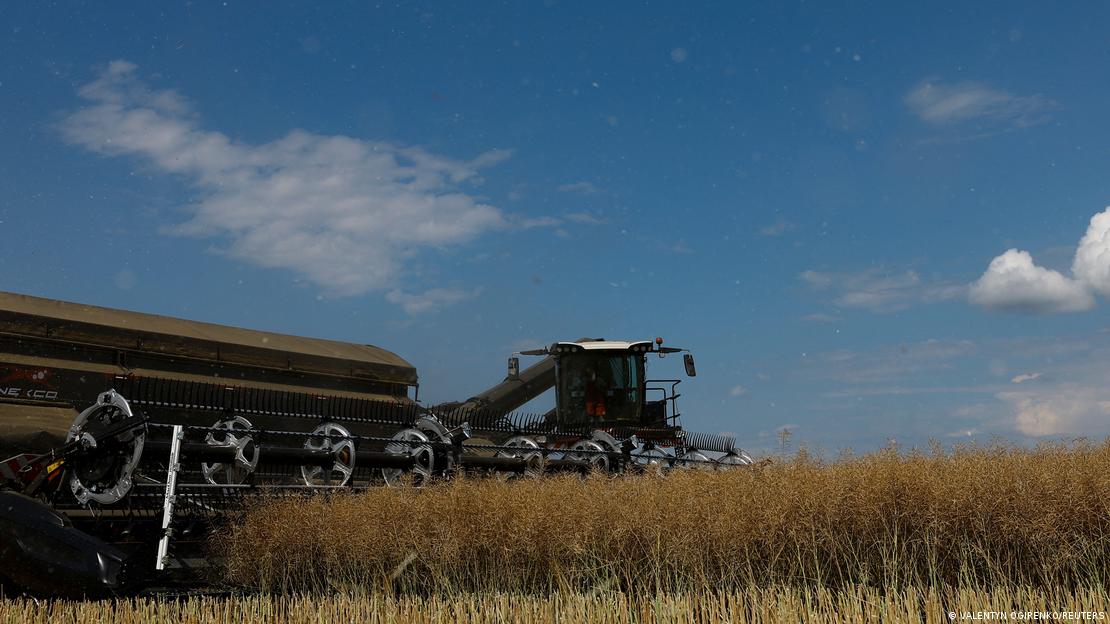By Phaidra Chrysostali,
Among Ukraine’s most reliable and loyal allies, Poland has announced that it is no longer supplying weapons to its neighbor, Ukraine, over a dispute regarding Kyiv’s grain exports. The dispute erupted on Friday when the European Commission lifted its temporary trade restrictions on Ukrainian grain and oilseeds in the five member states near Ukraine. This led to a series of protests by farmers over market distortions in some eastern EU countries due to increases in grain imports from Ukraine into the European Union. Therefore, the Polish Prime Minister, Mateusz Morawiecki, declared that they would extend the ban despite European’s Commissions orders to protect the interests of the Polish farmers.
President Volodymyr Zelensky expressed his complaints at the United Nations after Poland, Hungary, and Slovakia extended a ban on Ukrainian grain and continued to file a lawsuit against the three countries at the World Trade Organization. He criticized them for violating the EU’s internal market rules and for playing out solidarity when until then they were Ukraine’s most trustworthy European friends. In turn, Poland did not appreciate Ukraine’s accusations and decided to stop supplying Ukraine with weapons and instead arm Poland with more modern weapons. Despite the events, Poland still supports and helps Ukraine defeat the “Russian barbarian” by maintaining a military hub and by sending 320 Soviet-era tanks and 14 MiG-29 fighter jets even though it has little more to offer.
Since the beginning of the Russian invasion, Ukrainian exports of grain have been severely disrupted due to Russian military vessels repeatedly blocking Ukrainian ports in the Black Sea. The Russian blockade has forced Ukraine to cut off from its traditional routes and depend on other paths such as Poland, Slovakia, Hungary, and Romania, which has caused conflicts especially with Poland because grain exports have landed on the Polish market instead of transiting through the country to other markets, resulting in pushing down the prices or taking up storage capacity.

Poland’s ruling populist Law and Justice (PiS) party, realized that if they continued allowing Ukraine to affect the farmer’s market then there were many chances to lose their grip on power especially since there will be held parliamentary elections on October 15. It is important to mention that farmers played an important role in the elections of 2015 and 2019 and therefore their needs must be met by the ruling party. With the election just around the corner, Morawiecki does not wish to risk further protests that may lead to serious damage to his party which is why he implemented the unilateral import ban on Ukrainian grains and expected them to understand their interests since they have supported Ukraine since the start of the war.
The outside powers have decided to watch and wait for how the conflict will escalate and have described the tensions as “regrettable”. The European Commission even though is responsible for trade policy and import bans with the EU does not want to intervene just yet and prefers to analyze the measures taken by the four eastern European countries. Poland’s actions have left many European countries questioning its intentions since there is no necessity for import bans because there is no longer any distortion of the markets and there is a fear that the discontinuation of arms supply may influence other European countries to follow. In the case that the conflict escalates to a degree that will disrupt the market or will hurt their relations then the European Commission is willing to take legal action against Poland, Slovakia, Hungary, and Romania.
In conclusion, both countries have taken actions over the last few days that have caused great tensions between them. Nevertheless, Poland cannot provoke NATO and the United States, its two crucial security partners, and therefore must increase its flow of weapons onto the front lines even if the domestic political context has been pressuring it to take a firmer line on Kyiv. On the other hand, Zelensky must realize that his tough words for Poland this week have underlined the risks of pushing his allies too forcefully. Thankfully sources said that Kyiv has agreed to withdraw its lawsuit against the three countries and is willing to set up a grain license system in the upcoming months, which gives us hopes for a quick reconciliation.
References
- Chiappa, Claudia. “Poland, Ukraine Ready to Hold Talks over Grain Dispute.” POLITICO, 21 Sept. 2023. Available here www.politico.eu/article/poland-ukraine-grain-dispute-talks/.
- Lepiarz, Jacek, et al. “Ukrainian Grain: Why Are Eastern EU Members Banning Imports? – DW – 09/20/2023.” Dw.com, 20 Sept. 2023. Available here
- Radford, Antoinette, and Adam Easton. “Poland to Stop Supplying Weapons to Ukraine over Grain Row.” BBC News, 20 Sept. 2023. Available here




